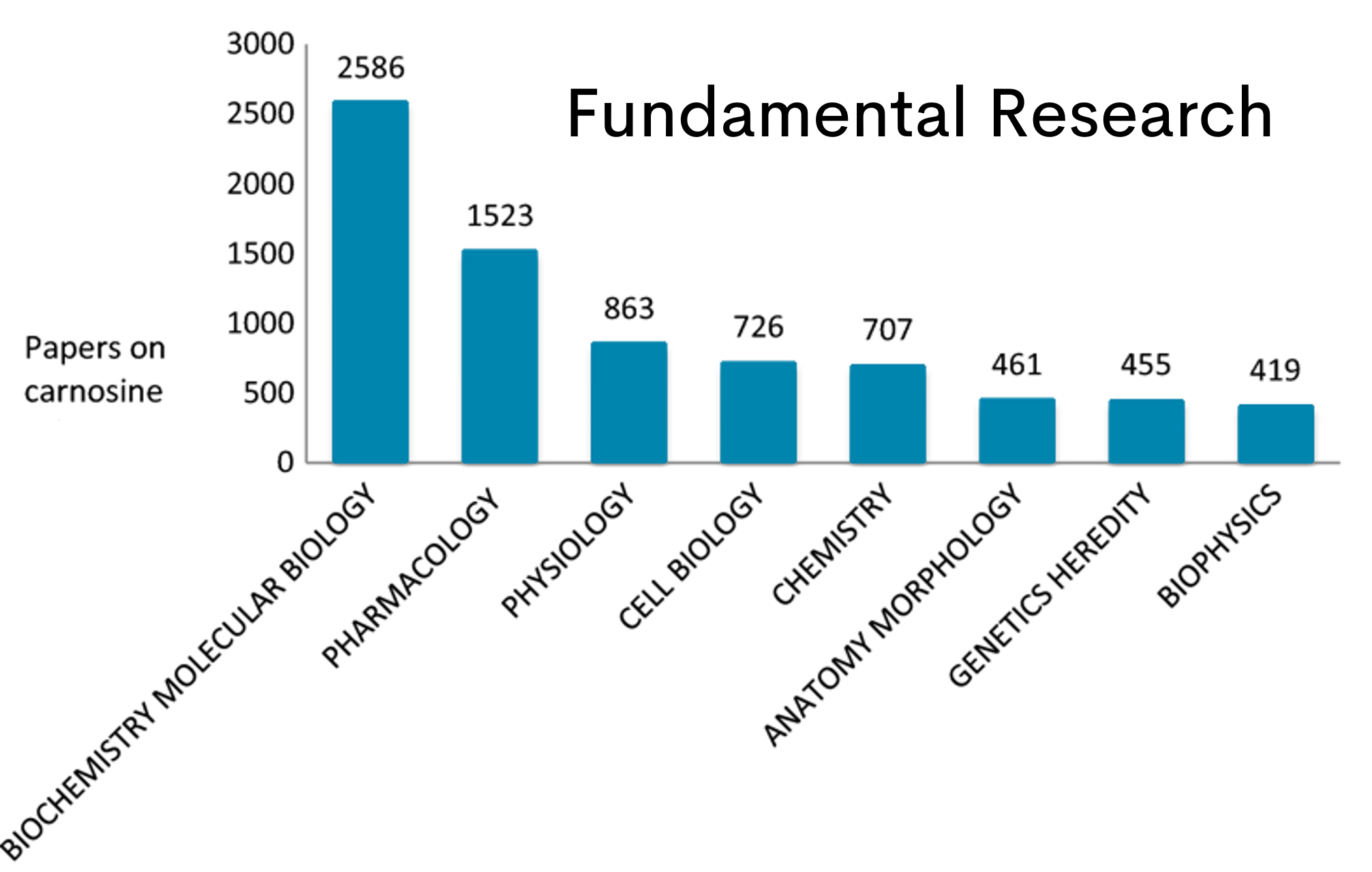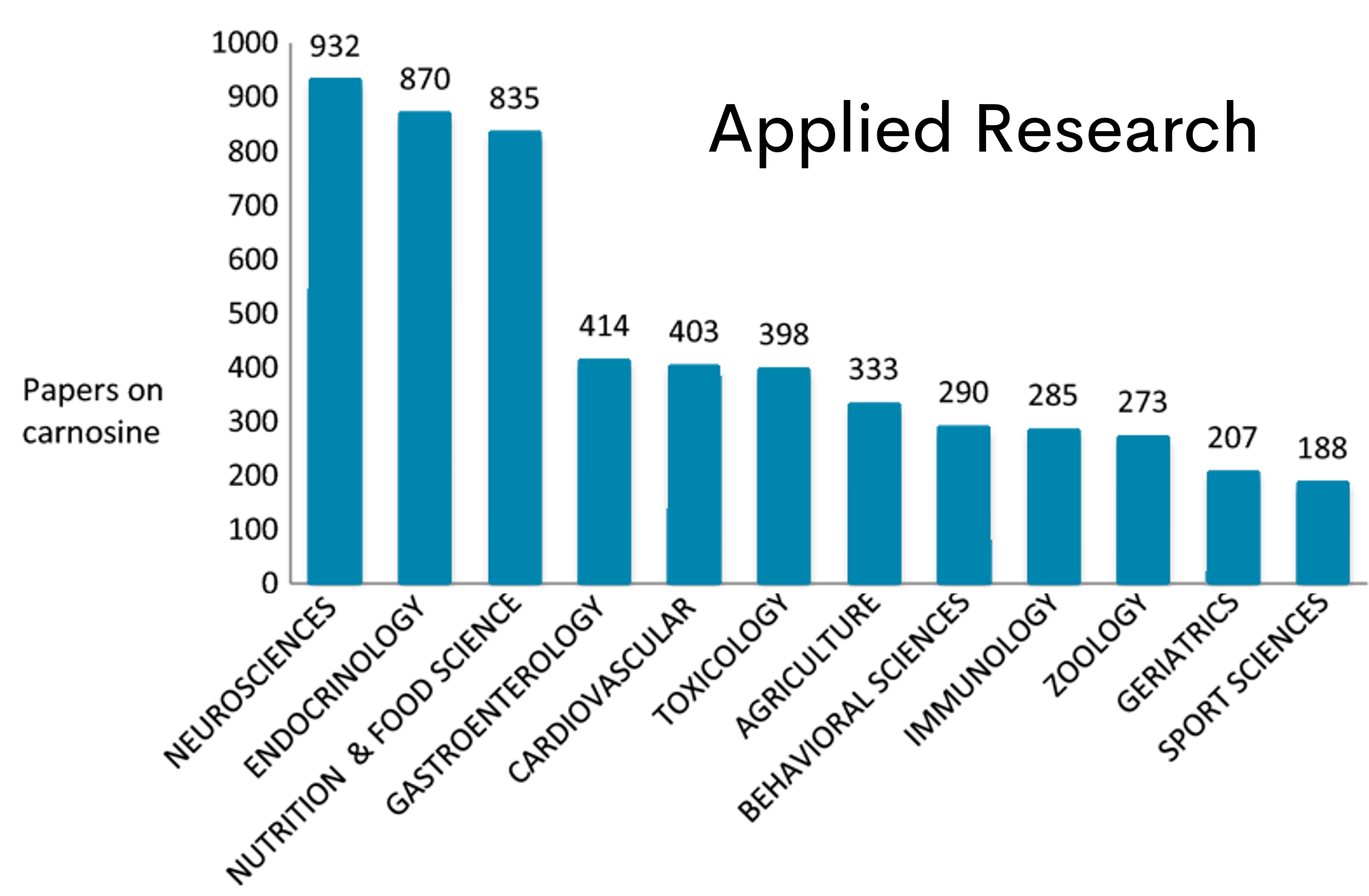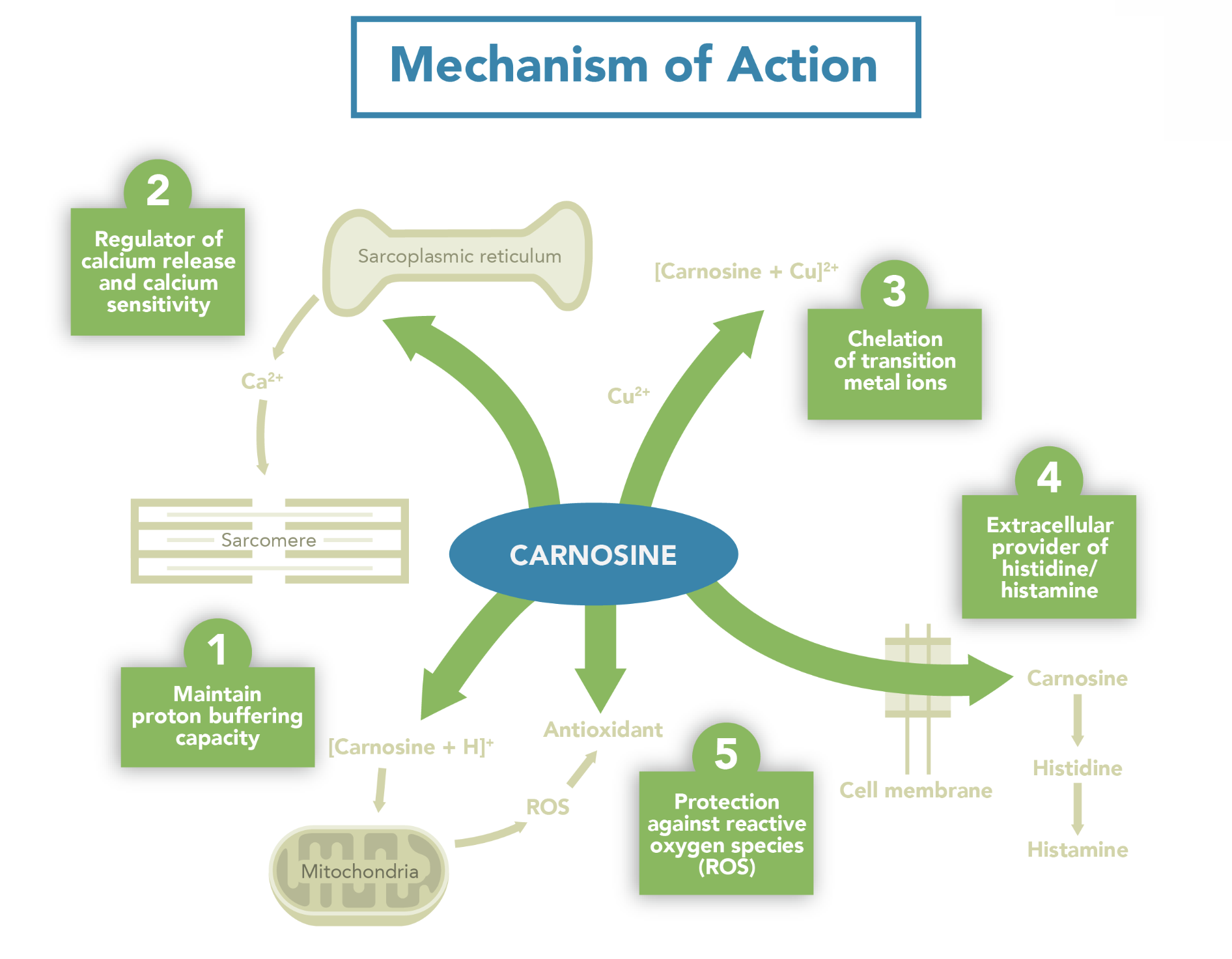Carnosine Research
The Importance of Carnosine
Carnosine is a dipeptide composed of two key amino acids—L-histidine and beta-alanine—belonging to a family of histidyl dipeptides. As we age, carnosine levels in both muscle and brain tissues decline progressively, leading to a cascade of physiological effects. This reduction in carnosine begins as early as the age of 30 and correlates with a decline in key life functions such as cognitive performance, muscle endurance, and the body’s ability to buffer lactic acid during physical exertion. Beta-alanine supplementation has been widely used as a carnosine booster, as it is the rate-limiting factor in carnosine synthesis, according to scientific evidence. Due to its unique chemical properties, carnosine provides a variety of health benefits at efficacious dosages and has been clinically proven to improve brain and muscle health, among other health benefits.
The growing interest in carnosine’s fundamental properties and broad application potential is evident in the scientific community, with over 3,300 publications dedicated to carnosine research to date. Studies range from biochemistry and molecular biology to pharmacology and physiology. Carnosine’s application extends to a wide variety of fields, including neurology, sports sciences, and nutrition, with ongoing research highlighting its benefits in areas such as cognitive function, metabolic health, and more.
The vast scope of research on carnosine reflects its versatility, making it a valuable component in therapeutic strategies and dietary supplements aimed at improving human health and performance.


The Multifunctionality of Carnosine
As a multifunctional dipeptide, carnosine’s biochemical properties suggest it plays a critical role in several essential physiological processes, including acid–base balance, antioxidant defense, and the scavenging of lipid peroxidation products. These functions have generated substantial interest in carnosine’s potential as a therapeutic intervention for conditions related to oxidative stress and lipid peroxidation, such as cardiovascular disease, diabetes, and neurodegenerative disorders in academic research.
The interaction between muscle and cognitive function is a complex and fascinating aspect of health, with carnosine playing a pivotal role in this relationship. While the multiple benefits of carnosine may seem too good to be true, they are well-supported by clinical evidence and scientific research. Carnosine not only enhances mitochondrial energy production but also plays a critical role in detoxification processes within the body. By improving muscle performance and reducing fatigue, carnosine supports not only physical capacity but also cognitive resilience, demonstrating its multifaceted impact on overall health and well-being.
Additionally, carnosine serves as a natural antioxidant and heavy metal chelator. The chemical structure enables it to detoxify reactive carbonyl species (RCS) generated from lipid peroxidation and glycoxidation, inhibiting the formation of advanced glycation end products (AGEs) and advanced lipoxidation end products (ALEs). Consequently, carnosine protects against free radical-generated oxidative damage and AGE-induced cellular toxicity, counteracting numerous harmful biochemical processes associated with aging, stress, and various health conditions. It supports vital tissues, including the brain, eyes, musculoskeletal system, and cardiovascular system, and may enhance insulin sensitivity while preventing micro- and macrovascular complications. These effects may delay the onset of type 2 diabetes, cardiovascular diseases, and neurodegenerative conditions such as Alzheimer’s and Parkinson’s disease.

